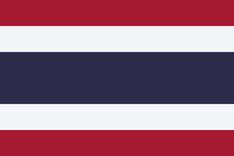

In 2019, environmental advocate Krisssakorn led a unique protest in the Pakmoon village, near a large dam that disrupted the natural water flow, affecting the local fish habitats and villagers' livelihoods. The protest, a mock funeral for the new governor of Ubon Ratchathani, was a symbolic act usually ignored by authorities. However, this time, the governor responded by pressing charges against Krisssakorn under the Computer-Related Crime Act (CCA) and for defamation.
These charges, allegedly a tactic from the central government that inspired local authorities, were meant to silence dissent against corruption, abuse of power, and violations of human rights. Krisssakorn criticized the judicial process as problematic, noting issues like the short notice on police affidavits and being denied lawyer accompaniment during hearings under a purported "policy."
The legal battle stretched over five years, with Krisssakorn dedicating two weeks each month to prepare his defense with his legal team and commuting to court. He estimated his total expenses, including legal fees, travel, and accommodation, at approximately 5 million THB (Thai Baht).
This case highlights the challenges posed by the law supposed to curb online false information, but instead imposed to create financial, personal, and organizational strains. Such burdens can significantly hinder meaningful activism that aims to defend rights of the citizens and keep the authorities in check.